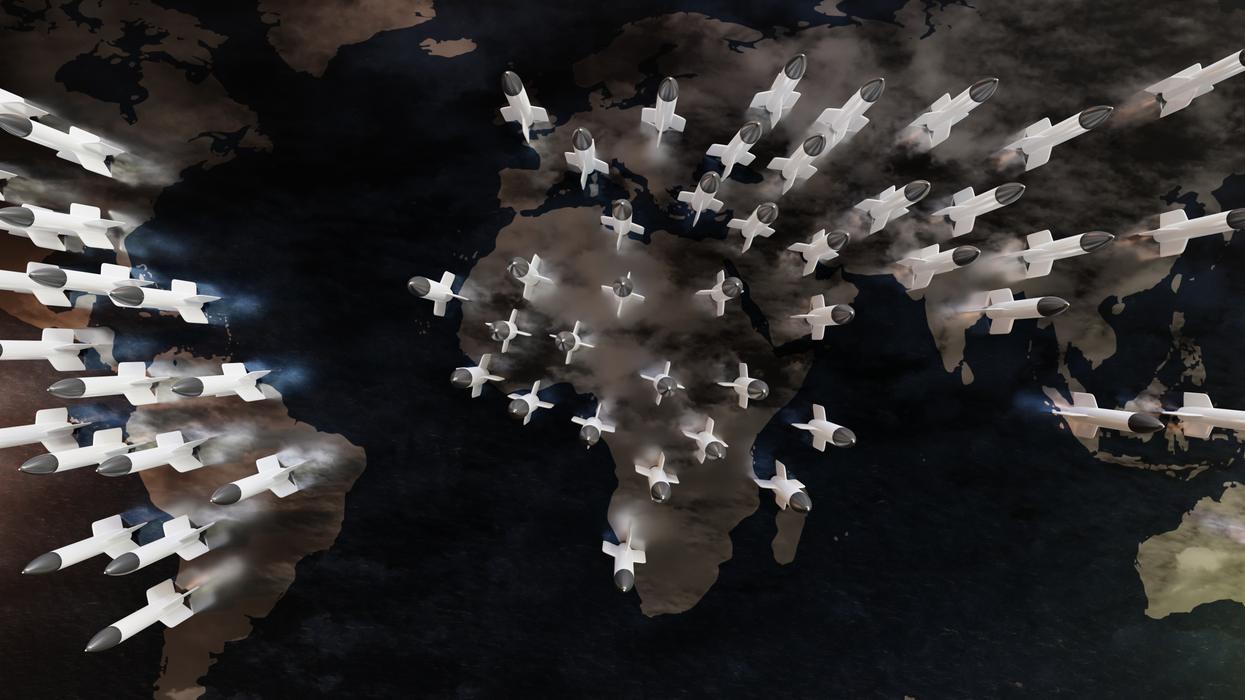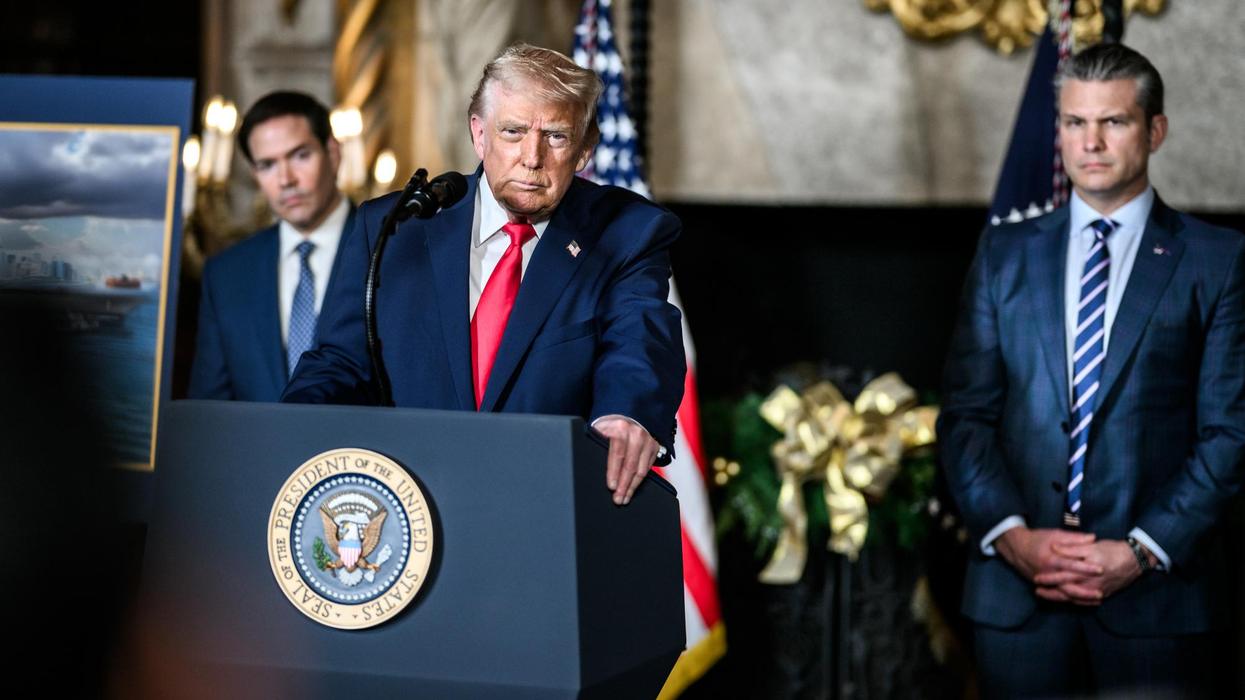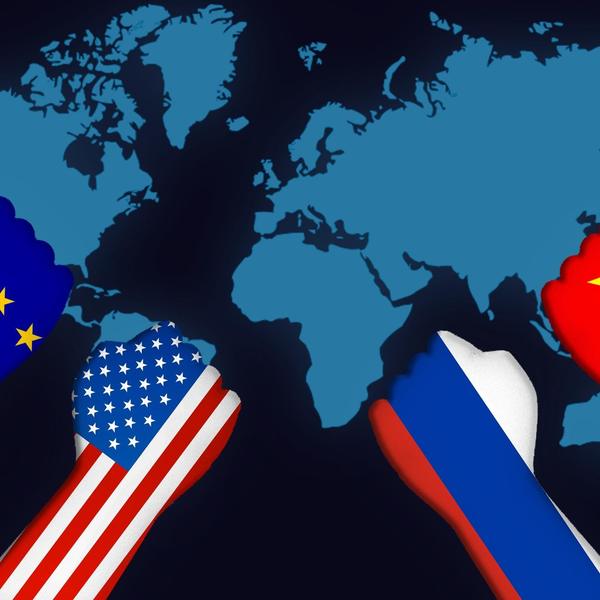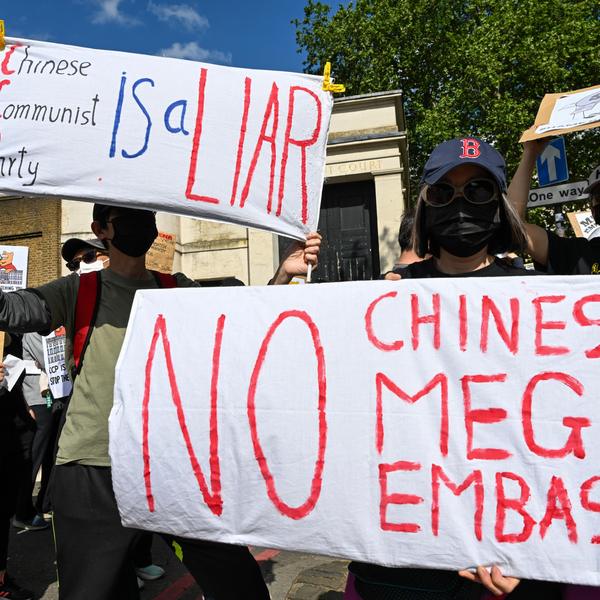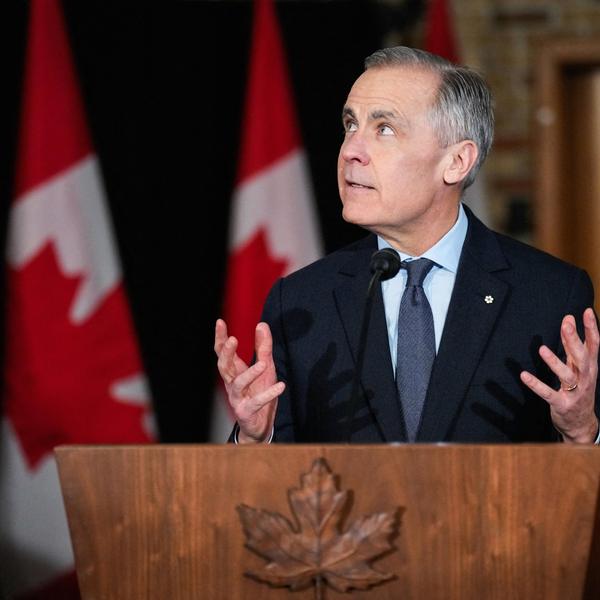The Bunker appears originally at the Project on Government Oversight and is republished here with permission.
Matching the U.S. military to U.S. goals
The U.S. has long engaged in Pentagon prestidigitation. That’s where it proactively pledges to commit its blood and treasure around the world, until it realizes there ain’t enough to go around (cf., the U.S. military couldn’t fight two relatively rinky-dink wars in Afghanistan and Iraq simultaneously). Short of doubling the U.S. defense budget to something like $2 trillion a year —“not gonna do it,” as President George H. W. Bush reportedly said — there’s only one other option: pick the nation’s fights, and where to fight, more judiciously.
This is a national conversation that is long overdue. That was made clear March 18, when NBC’s Courtney Kube and Gordon Lubold reported that the Trump administration might let NATO’s top general be someone other than a U.S. military officer for the first time. President Donald Trump is, to put it mildly, no fan of history’s greatest military alliance.
NATO backers were not pleased with this heavily armored trial balloon. “It would be a political mistake of epic proportion, and once we give it up, they are not going to give it back,” retired Admiral James Stavridis, who served as NATO’s top officer from 2009 to 2013, said. “We would lose an enormous amount of influence within NATO, and this would be seen, correctly, as probably the first step toward leaving the Alliance altogether.”
But Trump has succeeded in pushing NATO members to spend more to defend against a revanchist Russia. This is a burden they should be willing to bear, 80 years after the U.S. saved their bacon in World War II. If such pressure continues, east Asian nations could increasingly follow suit to counter China’s expansionist aims.
This is where the tank tread, so to speak, meets the road: If the U.S. counts on other nations to pick up the slack far from home, it will lose leverage when it comes to calling the shots, military or otherwise, far from home.
Ronald O’Rourke, an analyst at the Congressional Research Service, regularly updates his primer (PDF) on “Geography, Strategy, and U.S. Force Design.” In it, he concludes that the size and shape of the U.S. military “for the past several decades” has been driven by Washington’s “goal of preventing the emergence of regional hegemons in Eurasia.” But, in his most recent update, he adds a key coda:
- A change in U.S. foreign policy, the U.S. role in the world, and U.S. grand strategy toward one that accepts or supports the emergence of a spheres-of-influence world with spheres led by countries such as Russia, China, and the United States (whose sphere would likely be centered on the Western Hemisphere) could lead to a change in the U.S. force-planning standard, the size and composition of U.S. military forces, and U.S. defense plans, programs, and budgets.
Apparently, the only thing we have to sphere is sphere itself.
Dogfight
Trump’s disdain for NATO allies could bite the U.S. arms biz’s bottom line. Turns out some of those allies are in the market for new jet fighters, and the Pentagon’s F-35 fighter is looking less desirable in light of the White House’s barely concealed contempt for its potential buyers.
Britain, Canada, Germany, and Portugal are all candidates to scale back, or not even buy, F-35s since Trump declared he might hesitate to defend or even seek to annex NATO allies. The French-built Rafale and Swedish-built Gripen fighters, among others, are far cheaper, good-enough, options. “There’s going to be long-term negative consequences to the U.S. arms-export prospects to Europe and other allies,” veteran aerospace consultant Richard Aboulafia predicted. “The F-35 was the product of an era of extreme trust, and they may never trust the U.S. again.”
“The United States priorities, once closely aligned with our own, are beginning to shift,” Canadian Prime Minister Mark Carney said March 18 as he announced Canada was buying a $4.2 billion Australian radar system. The day before, he had discussed the deal with Australian Prime Minister Anthony Albanese, who was pleased at the outcome. “Obviously,” Albanese said, “there are issues taking place, particularly between Canada and the United States, I wouldn’t have expected to have been happening in my lifetime.” Canada has already paid for 16 yet-to-be-delivered F-35s of a planned 88-plane buy worth $19 billion, but the balance could be up for grabs.
Trump may be a savvy pol, but someone in his orbit needs to remind him of Newton’s Third Law: for every action there is an equal, and opposite, reaction.
Arms sales aren’t the only thing at stake
U.S. allies pushing for their own nuclear arsenals have largely been sidelined for two generations because those nations counted on staying dry (from atomic fallout) under the U.S. nuclear umbrella. But Trump’s “America First” agenda, and his willingness to dismiss the need for alliances where the U.S. once provided superpower protection, are giving rise to second thoughts. France — the lone NATO member with nuclear weapons not dependent on U.S. technology — has suggested its neighbors share its own A-bomb bumbershoot.
The U.S. has fought to restrict access to the nine nations known to be in the nuclear club, primarily via good-government options like the Nuclear Nonproliferation Treaty. But such efforts are no guarantee. Most infamously, Russia joined with the U.S. and Britain in 1994 in convincing Ukraine to give up the Soviet Union’s nuclear weapons on its soil in exchange for Moscow’s pledge to respect its neighbor’s borders. Once stripped of such weapons, there was little Ukraine could do to thwart Russia’s attack on Crimea in 2014 and its full-scale invasion three years ago.
“The Trump administration’s approach to Ukraine and Russia has significantly undercut allied confidence in the United States, including on extended [nuclear] deterrence,” Eric Brewer, who pushed nonproliferation efforts at the White House during Trump’s first term, said. “Not only is [Trump] pivoting away from allies but he’s seemingly pivoting toward Russia.”
Think of it as the Cold War’s domino theory, but in reverse — if any U.S.-allied state becomes a new nuclear power, others will all but surely follow. The resulting atomic avalanche will raise the chances of nuclear war, deliberate or otherwise.
Here’s what has caught The Bunker’s eye recently
“For the first time ever, the Pentagon is set to spend a year without an approved full congressional budget,” Defense News reported March 17.
Doug Edelman and his wife allegedly failed to pay $129 million in taxes from their Pentagon contracts supporting the Afghan war, the Wall Street Journal’s Margot Patrick reported March 18.
→ Dumb Empty-headed Idiots (D.E.I.) [PDF]
Sharing war plans via an unclassified mobile app — as the Trump administration’s high command just did — is something expressly barred by this 2023 Pentagon directive that apparently no one read.
But despite that, thanks for reading The Bunker this week. Consider sending to allies so they can subscribe here.


